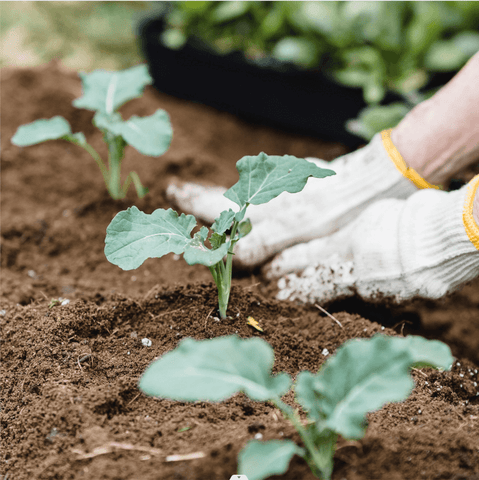Is there anything salt can't do? You may think not, but we'll prove you wrong with this post. Salt is great for killing weeds, and can also be used as a deicer and cleaning agent. And check out this post on how to use salt in your garden bed!
Dealing with weeds in the garden bed is a task that most gardeners fear. Pulling them by hand is time-consuming and repetitive, but many gardeners also want to avoid using commercially available chemical herbicides because they pose environmental and health risks.
Having said that, there are some non-toxic herbicides that can be used to effectively control weeds in the garden - that is, salt. Although no herbicide can be marked as truly "harmless" in the garden (after all, their main purpose is to kill unwanted plants!), salt (or sodium chloride) is a natural solution, which is very good for annoying weeds.

Can salt be used to kill weeds?
In short, salt is an effective non-toxic herbicide. However, not all salts are equal in weed control. Conventional iodized or non iodized salt must be used. Check the packaging to ensure that you are using sodium chloride, not magnesium sulfate (Epsom), rock salt or sea salt.
When using salt as herbicide, it must be used with care. It can easily kill the surrounding plants, or infiltrate into the soil and affect their long-term health. Over time, too much salt can even disinfect the soil. Therefore, it may be most effectively used to deal with weeds in the garden that are not surrounded by plants you care about, such as weeds that protrude from asphalt or sidewalk cracks, or weeds that grow between yard stones.
The Chemistry of Salt: How Salt Kills Weeds
Salt (sodium chloride) kills weeds by dehydrating plants and destroying the internal water balance of plant cells. Because salt is water-soluble, it is most effectively applied when mixed with water, because it can make weeds more easily absorbed. Sodium chloride is highly toxic to all plants, which is why it must be used with caution. In general, salt is best used as a herbicide for small-scale gardening or weed control.
How to use salt as herbicide
When salt is mixed with water, it is most effective as a herbicide. The recommended strength of the saline mixture depends on where you plan to apply the herbicide. If you sprinkle salt on the weeds in the garden bed, and there are other plants you don't want to kill, you should start with a weaker mixture, such as a 1:2 mixture of salt and water.
Or, if you apply salt to areas where the long-term health of the soil is not a problem (such as between patio stones, driveway cracks, etc.), you can make stronger mixtures, such as 2:1 or 3:1. Over time, this amount of salt will certainly affect the pH value of the soil and may cause the soil to become sterile.
The saline solution should be applied directly to the leaves of weeds. Avoid soaking roots with mixture to protect surrounding soil and plants. Salt water can be applied with a spray bottle or poured from a container. If there are other plants nearby, please apply herbicide on the weeds and water them heavily to flush out any saline water entering the surrounding soil. Salt water treatment is not recommended in narrow flower beds and vegetable gardens.

Salt and other non-toxic herbicides
There are several other "non-toxic" herbicides that are popular among home gardeners. Each method has its own advantages and disadvantages, and none of them is a one size fits all solution.
Home vinegar is an option, although they are not as effective as garden vinegar with a higher concentration of acetic acid. When these vinegar are mixed with salt and water, it is possible to control weeds well. Like the mixture of salt and water, vinegar must be used with care, because it will change the pH balance of the soil over time, thus affecting the growth of future plants.
Boiling water can also play a role to some extent. This is an excellent choice for dealing with difficult weeds in garden beds, as water does not have a residual effect on the soil. However, like most other herbicides, boiled water needs to be applied very carefully in the garden to avoid damaging plants you do not want to kill.
Surprisingly, fire is another "non-toxic" weed control method used by gardeners. The fire destroyed the new weeds and caused damage to the structure. Although fire fighting will permanently remove annual weeds, it will not kill the roots of more hardy perennial weeds.









